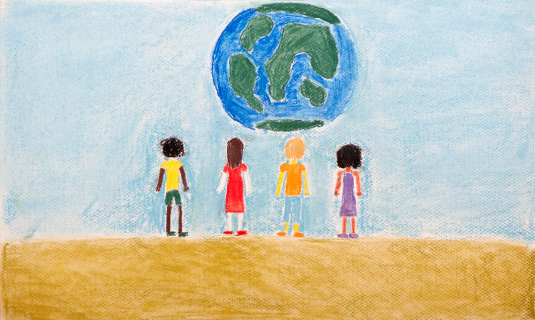Understanding World-views
A Story…
“The other night I, a Christian, went to a talk at a Presbyterian church given by a Muslim physician who was explaining his belief system. I disagree with his truth claims. I believe he is wrong. But I respect him and honor his right to believe as he does. Christians actually believe you have a right to a differing belief, you have a right to be wrong, you have a right to reject Jesus Christ. Christianity and Islam make contradictory truth claims. Logically, they could both be wrong, but they CANNOT both be right.”
Definition of Worldview
- A worldview is a set of presuppositions which we hold about the basic make-up of our world.
- These presuppositions may be more or less consistent with each other, more or less consciously held, and more or less true.
- Our worldview affects what we believe, what we value, and how we behave.
Words and their meanings are crucial in communication — especially as I communicate the gospel. The words “god”, “love”, “sin” and “faith” all represent different things to different people, and I must find common meaning for these terms with my friend if he or she is to understand my message. So, how do I go about understanding another’s worldview? And how can I communicate my own?
The questions below from “The Universe Next Door” by James W. Sire can help us get started. Sire lists the questions we all grapple with as we work to make sense of the world around us:
Seven Elements of a Worldview
- What is the prime reality? (Is it God, or gods, or the material cosmos?)
- What is the nature of the world around us? (Was it created, autonomous, chaotic, orderly, or spiritual)?
- What is a human being? (Is he/she a highly complex machine or a sleeping god)?
- What happens to a person at death? (Extinction or transformation?)
- Why is it possible to know anything at all? (Are we made in the image of an all-knowing God or is our consciousness/rationality a product of a long process of evolution?)
- How do we know what is right and wrong? (Are we made in the image of God whose character is good, or are right and wrong determined by human choice alone?)
- What is the meaning of human history? (Is it to realize the purposes of God, or to make a paradise on earth, etc)?1Sire, James. The Universe Next Door. Madison: IVP, 1976.
Beginning to uncover my worldview…
The Bible, more than any other book, powerfully shapes our worldview. As you read the questions above, ask yourself the following:
- “How does the Bible answer that?” (study the Scriptures and answer each of Sire’s questions with scriptural references)
- “How does this challenge what I currently believe?”
Remember, our view of the world shapes what we believe, what we value, and how we behave. For example, say that I am a new believer. It is very likely , after studying the Bible, I will soon conclude that:
- God exists (what is real)
- God is love (what I believe true about God)
- God loves me (what I value about God)
- God wants me to love others (how I should behave towards others)
Over time, what I believe, value, and do should change as my assumptions about God begin to conform to what He says about Himself in His Word.The best way to begin to understand another’s beliefs is to simply ask the person questions.
It is risky to simply read about someone’s culture and assume you now understand that person’s beliefs. While this person may share many common cultural traits with others from his culture, everyone’s belief system is unique. (Do you agree with others from your own culture on all aspects of politics, religion, ethics, etc.?)
- Ask the meaning of words as you share the gospel with international students.
- As you talk about “God,” “sin,” “love,” “faith,” “belief,” and “forgiveness,” ask what those words mean to them.
- Their answers will open a window into their worldview and will help you make adjustment your presentation to produce greater understanding.
An actual conversation…
My Asian friend and I were having a discussion about what happens to us after death. He said that in his country, people are taught that the body and soul are destroyed upon death. I asked him if that was also his belief. and he said no. He believes that the soul continues after death, but he is uncertain what that means. As you take time to understand your international friend’s worldview you will not only enhance your friendship, but you will find ways to effectively communicate about the things that matter most — to you and to your friend.
